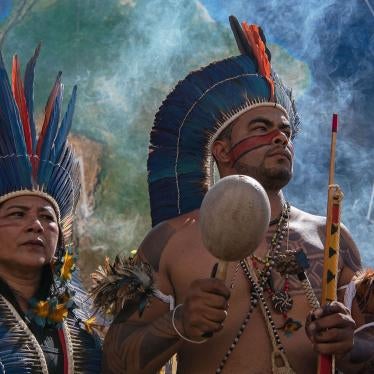President Luiz Inácio Lula da Silva took an important step to strengthen protection for environmental defenders across Brazil by sending the Escazú Agreement to Congress for approval on May 11. This historic treaty – the first of its kind in Latin America and the Caribbean – would help shore up Brazil’s role on protecting the environment and its defenders.
The agreement had been gathering dust in Brasília for years. Neither the president who signed it in 2018, Michel Temer, nor Jair Bolsonaro, who followed, sent it to Congress for approval. In January, Human Rights Watch addressed the issue in meetings with several ministers in the new Lula administration, who expressed their support. After an appeal from over 140 organizations, including Human Rights Watch, Lula finally sent it to legislators.
Brazilian parliamentarians now have the opportunity to provide its constituents with a treaty that would increase transparency in environmental decision-making by promoting access to information and public participation. This would be a sea change after years of policymaking that sidelined nongovernmental groups and sabotaged environmental law enforcement, which had disastrous consequences for the environment and its defenders in Brazil.
The agreement would also require Brazil’s government to take measures to prevent, investigate, and impose sanctions for attacks against environmental defenders. This would be an invaluable commitment from a country where Indigenous people, small farmers, and other environmental activists have faced the onslaught of groups profiting from the destruction of the environment with impunity.
Lula’s decision to send the treaty to Brazil’s Congress came three weeks after countries that ratified the agreement gathered in Buenos Aires for the second conference of the parties. Brazil joined as an observer. During the meeting, Brazil’s environment minister, Marina Silva, reiterated the country’s commitments to stop all deforestation in the Amazon by 2030, to address climate change, and strengthen democracy.
Congress should also do its part by quickly approving the Escazú Agreement. Support for more government transparency, access to information, and stronger protection for Brazil’s environmental patrimony should come from all political parties.










